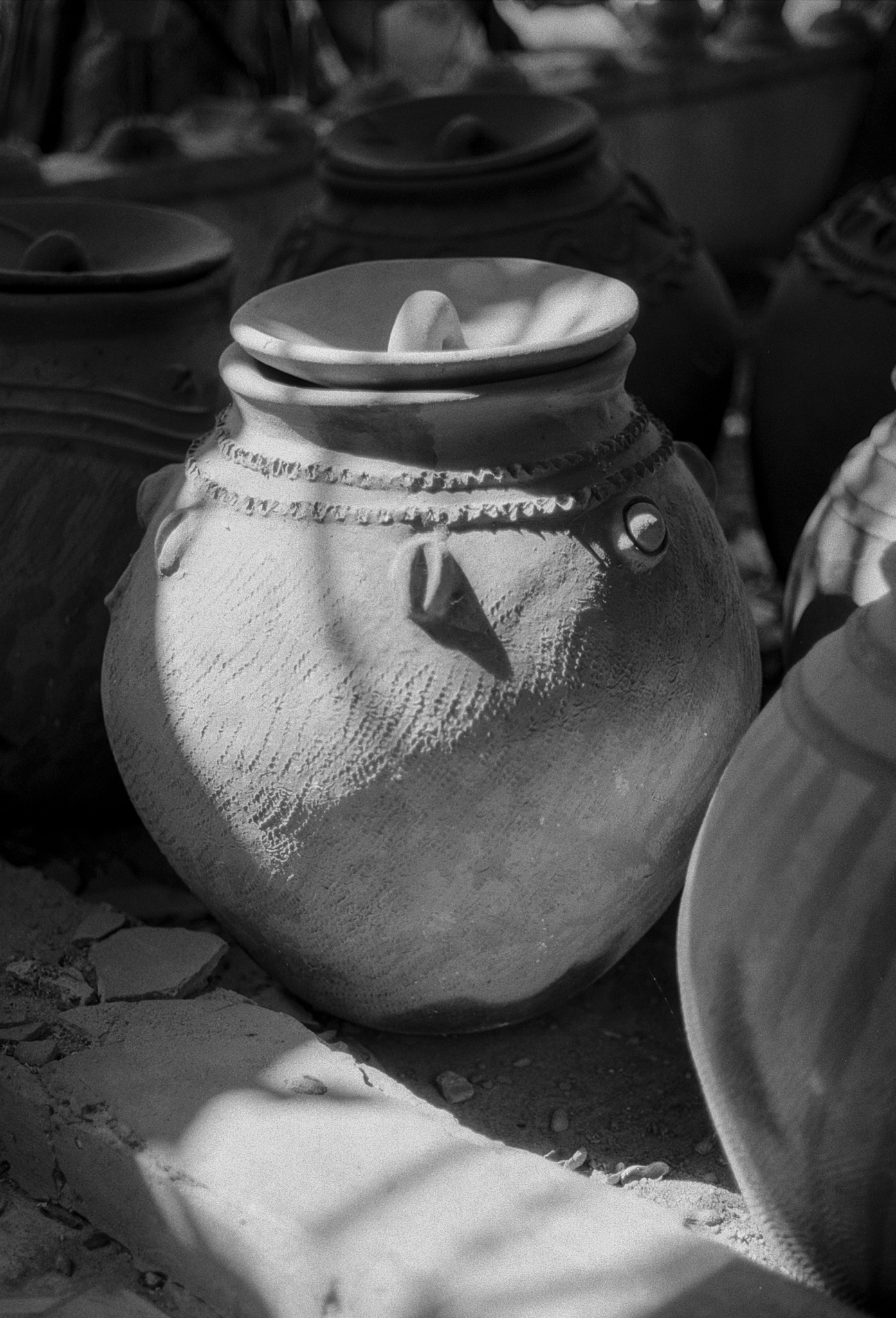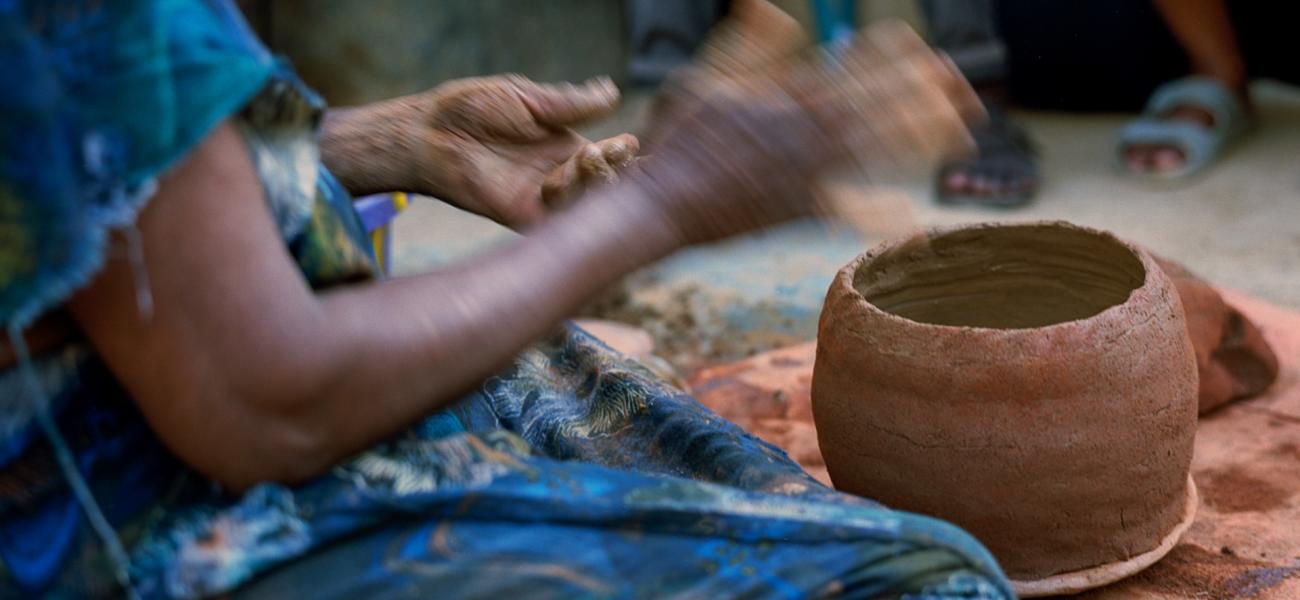 In most ethnic groups in Senegal, “ceramic production is exclusively carried out by women or their daughters belonging to endogamous and hereditary groups (…)."[1] Traditionally, ceramic is a female craft in Senegal. The craft is usually passed on from mother to daughter, niece, etc. Hence, women play a central role in both transmitting their skills and knowledge to the next generation as well as being the pillar of ceramic material culture in Senegal.
In most ethnic groups in Senegal, “ceramic production is exclusively carried out by women or their daughters belonging to endogamous and hereditary groups (…)."[1] Traditionally, ceramic is a female craft in Senegal. The craft is usually passed on from mother to daughter, niece, etc. Hence, women play a central role in both transmitting their skills and knowledge to the next generation as well as being the pillar of ceramic material culture in Senegal.
“An essentially domestic supplementary activity carried out on the sidelines of household and agricultural tasks, pottery work thus allows socially distinguished women to acquire a certain financial independence.”[2] So could ceramics initially be characterized as feminine, multigenerational, intimate, and emancipatory practice?
Nowadays, traditional ceramic objects such as “canari” (low-fired water containers that naturally help to purify water) have largely been replaced by imported plastic and metal goods mainly due to globalization but also other factors. Consequently, the economic emancipation of women ceramicists through pottery is strongly declining, heavily impacting the overall ceramic economy. Ceramists such as Marie Sow from the Fouta region of Senegal have made the decision not to pass down skills to their daughters. From a non-material perspective, this choice is an immense loss of heritage, especially considering that Marie Sow represents one of the last generations of women potters from her locality. Moreover, it also represents a lost heritage not only for her family and ethnic group but also for the representation of African women in ceramics and for young aspiring Senegalese ceramicists.
So what does the future hold for ceramics in Senegal for younger generations if the traditions, crafts-woman-ship, knowledge, and material culture cease to exist?


